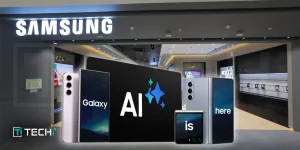There’s a lot of hand-wringing over the so-called “dumbing-down” of America. We don’t read, we can’t write except in and LOLcat-speak, we barely know who’s president.
Technology often takes the blame for some of this, with video games and the abbreviated speech of texts and Twitter squarely in the sights of our educators.
But e-readers are beginning to create new readers and are getting more people than ever to buy books and read them. We’re buying 57 books a second in the United States, between the paper and electronic varieties. And though sales of print books have been declining (not precipitously, mind you) over the past few years, sales of electronic books are increasing even faster.
Once you get past the price of the e-reader, the cost of an electronic book is considerably less than the cost of a new print book – averaging $9.99 vs $25.99. To be sure, many people who buy print books are buying them secondhand, and those figures aren’t included in the infographic below from RetailMeNot, but the book industry relies on those initial sales.
Perhaps most interesting – 53 percent of those who buy e-readers say they’re reading more now than they did six months ago, and just 15 percent of e-reader owners say they stop buying printed books as well.
Perhaps, in this case, technology is the savior of the old dead-tree media. Plus, over time, it’s a lot more environmentally sound. Check out the infographic for the details on that aspect of things.





